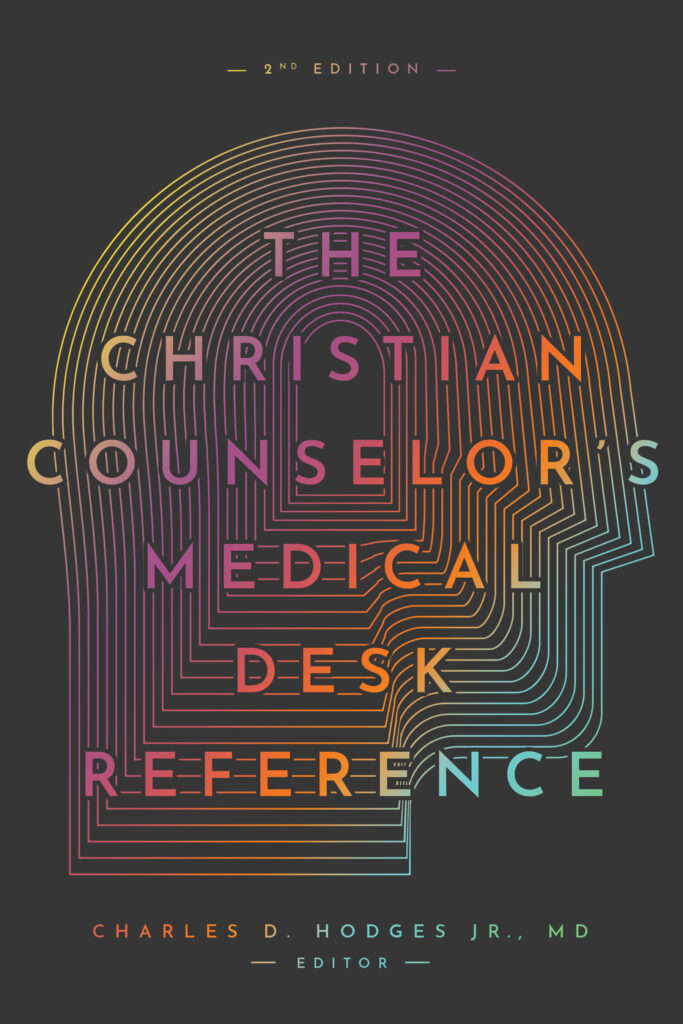The two women who sat across from me in my counseling office were clearly related—they shared many features and mannerisms. Sadly, I could also see that today they came in with a shared fear.
About a year ago, Alice had begun to suspect that something was wrong when her mom, Joann, started to misplace things like her keys. Joann, who was seventy-six years old, lived by herself as a widow. Around the same time, Alice also had observed that her mom was repeating stories in the same conversation and forgetting to pay bills. Despite these concerns, the mistakes were attributed to old age.
Finally, one night Alice waited anxiously for her mom’s arrival, while Joann, who lived less than five minutes away, was uncharacteristically late. She was lost in her own neighborhood. A neighbor recognized Joann’s car and directed her back to her own house. When Alice shared her concerns with Joann, at first Joanna tried to dismiss them, but eventually she agreed to go see her doctor.
Alice accompanied her mom to the doctor’s visit that day. Joann recounted the recent mishaps while Alice filled in the details. Next, the doctor administered the Montreal Cognitive Assessment. This cognitive test is scored on a 30-point scale and is designed to capture subtle cognitive deficits.1 Joann stumbled her way through drawing a clock and recalling objects to receive a score of 21, which indicated that she had significant cognitive impairment. After a physical exam, the doctor recommended blood testing, a computed tomography (CT) scan of her brain, and an electrocardiogram (EKG) to check the health of her heart. The doctor did not mention the word dementia, but these tests were ordered to evaluate for it.
Dementia Statistics
Alice and Joann returned to the doctor’s office to learn what the tests found. However, in Joann’s case, the blood tests, CT scan, and EKG did not reveal any specific diagnosis. Based on the NIA-AA criteria, Joann was diagnosed with Alzheimer’s dementia. Joann joined around 5.7 million Americans who suffer from dementia.2 With an aging population, the number of dementia sufferers is projected to double over the next twenty years.3 Combined with 18.4 billion volunteer caregiver hours provided by around 16 million Americans, dementia is relevant both to sufferers like Joann and caregivers like Alice. The disease is not just prevalent but also prolonged as dementia sufferers live on average ten years following diagnosis. Shockingly, around 20 percent of spousal dementia caregivers die prior to the dementia care recipient.4
Progression of Dementia
Over the coming months after her diagnosis, Joann’s frustration began to escalate as her world grew smaller and closed in on her. As her memory slipped away, she would hit her head with her fists to try to jar the memories loose. She was embarrassed by memory mistakes that popped up, and she wanted to avoid situations that might expose her deficiencies. Eventually, she stopped going to church, for the former place of comfort had now become a place of consternation.
Counseling Dementia Sufferers
After leaving the doctor’s office, Joann continued to spiral into the depths of depression—mingled with anxiety. The lack of a cure combined with the growing sense of loneliness began to weigh heavy. She did not want to burden her family, especially Alice. She was slowly transitioning from being a caregiver to a care receiver as she regressed back to childhood dependence.
At this low point, Alice urged her mom to seek help from the counseling provided at the church. With dementia sufferers, the tendency can be to slowly pull away from the church community at the very time when that community is most needed. Alice and Joann sought out counseling as they looked for help to deal with the overwhelming and uncertain future. Each looked down the future path as caregiver and care receiver with fear.
As a counselor, the tendency may be to go right to the caregiver for specific information about the past year since she will be able to give the most details. However, it is important to directly address the dementia sufferer and involve them in the conversation to reinforce their dignity and acknowledge the value they add to the conversation. The method and types of engagement will change as the disease progresses. You cannot counsel or care for someone with early-stage dementia in the same way that you would someone with late-stage dementia.
Draw Out the Heart by Starting with the Familiar
To help draw Joann into the conversation, we initially focused on finding out how she was doing in the immediate present. Dementia erodes our ability to communicate emotional, physical, and spiritual needs. A dementia sufferer might need help not just expressing these needs, but also understanding what these needs are. “The purpose in a man’s heart is like deep water, but a man of understanding will draw it out” (Proverbs 20:5 ESV). As our memory fades, the water deepens. To reach the waters of the heart, the rope must be lengthened through time and patience.
In counseling, another way to draw out a dementia sufferer is to help them find familiarity in older, more accessible memories. Many with dementia will recall childhood stories with surprising clarity because these areas are not affected early on. After I asked Joann about her childhood home, she brightened as she remembered walking down the main street of her small hometown with fondness. We spoke about her childhood church, and then the conversation transitioned to her present church. We talked about why it was hard for her to attend. At this point, Alice added that some of Joann’s friends had been checking in on her. Joann started to tear up and said, “What if my friends stop coming to visit? I am worried that I will be forgotten.”
Address the Fear of Forgetfulness
Joann expressed her fear that not only would she forget others, but that they would forget her. Memory provides meaning and maintains identity. Author Jeffrey Arthurs writes, “If we have no memory, we are adrift, because memory is the mooring to which we are tied.”5 As dementia progresses and memory’s moorings loosen, fear sets in as you “lose the ability to tell one’s story.”6 Joann feared not just that she would lose her story, but that others would also forget to tell her story. At this point, compassion bubbled up within me for Joann, who was burdened by this fear. Joann needed hope; she needed to be reminded of the Savior who kisses away the fear of dementia with his promises.7
Find Hope in the Memory of God
As the three of us sat in a moment of silence, Alice looked at her mom and said, “Mom, don’t forget God remembers you.” Alice spoke wise words. As Joann’s memory slipped away, God’s memory remained like an anchor. As the moorings of memory loosened from the dock, the anchor held the boat securely underneath the water, tethered to the perfect memory of God.
First, we opened and read together Psalm 139:1–12 to look at God’s perfect memory. David marvels at the omniscience of God who is intimately “acquainted with all my ways” (v. 3 ESV). Even when memory fails and my knowledge of God wanes, he knows me better than I know myself. “God can still relate to a person even if his or her ability to relate to God (or to other people) appears lost.”8 His omniscience surpasses my knowledge even when my memory is fully functional.
David goes on to speak of God’s omnipresence. God is everywhere, and is as high as the heavens and as far as “the uttermost parts of the sea” (v. 9 ESV). You cannot wander away from him intentionally or unintentionally. God knows you personally, and he knows where you are positionally. This knowledge is not cold and confined, but wrapped in compassion and care. God does not simply use his knowledge to convict you of your shortcomings, but to care for you in those shortcomings. This care is best expressed through his promises.
Through God’s perfect memory, his promises spring forth in Christ. “For all the promises of God find their Yes in him” (2 Corinthians 1:20 ESV). Dementia is a result of living in a fallen world, a world that is broken from the presence of sin. The earth now sits under the curse that brings disease and death to all mankind. Through his grace, God made a way of salvation from sin through his Son, Jesus Christ. Through his death and resurrection, Jesus conquered sin and death. The promises secured by Christ need to be recounted, especially in the face of dementia.
Review the Promises We Have in Christ
Joann, Alice, and I walked through these applicable promises together. We turned to Romans 8:38–39, which reminds us that nothing (including dementia) can separate us from God’s love. This promise reiterates the security Joann has in Christ. Salvation is not lost when she forgets the gospel story. Rather, dementia reinforces that salvation rests in God’s memory, not in our forgetful minds. Jesus promised that “this is the will of him who sent me, that I should lose nothing of all that he has given me” (John 6:39 ESV). God sought you out when you were a lost sheep and purchased you with the precious blood of Christ. Trust in the One who will keep you to the end.
Hope extends from the present to the future when all things will be made new. As one author expressed it, “I will trust in God, who will hold me safe in His memory, until that glorious day of Resurrection, when each facet of my personality can be expressed in the full.”9 The resurrection of Christ ensures the resurrection of his children. We now have victory through Jesus Christ (1 Corinthians 15:54–57). Joann will still feel the sting of losing her memory on this earth, but it will not last beyond this life because her body will be raised imperishable, no longer ravaged by the effects of the disease of dementia.
Finally, God promises that our suffering is limited (2 Corinthians 4:16–18). Joann’s physical body and mind were suffering from her dementia, but the years that she will suffer on earth will be momentary compared to eternity with Christ. Focusing on the temporal is overwhelming, but not when it is viewed in light of eternity. In many regards, dementia helps loosen the grip we have on this world. Suffering reminds us that there is something better to come than this present world, and “we groan, longing to put on our heavenly dwelling” (2 Corinthians 5:2 ESV).
Joann’s fears represent the feelings of many others who fear dementia. In fact, dementia is now the most feared diagnosis in the United States, even more feared than cancer.10 For Christians, “God’s promises are as a fountain, never emptied, ever overflowing, so you may draw from them, and they shall be still as full as ever.”11 Counseling encouraged Joann to draw comfort from the promise of security in Christ, the hope of resurrection, and the limits of suffering. God always keeps his promises; his memory never fails.
Practical Tips for Helping Dementia Sufferers
Counseling provides biblically based care for the soul. Encourage a mild dementia sufferer to continue to daily read the Bible with its promises. Ask about favorite Bible verses that your counselee could write down in a book or frame to place around their home. As memory slips, consider moving toward audio options for Scripture intake.
Play favorite songs and hymns that provide peace through familiarity and comforting truths. Music accesses a part of memory that is preserved even in late-stage dementia. Music acts as a key “that can unlock emotions, feelings, and recollections that would otherwise be inaccessible,”12 and it serves as a calming presence in a confusing and changing world.
A dementia sufferer should be encouraged to tell others about their diagnosis. Let others come alongside and bear the burden. When Christians do not forget the dementia sufferer, they further cement the promise that God also does not forget. With Alzheimer’s dementia, Joann might benefit from joining a support group. However, support groups and close involvement might not be helpful for all types of dementia, like frontotemporal dementia, which strongly affects behavior. Community organizations also provide resources and pro- grams that should be explored.
As your counselee’s memory progressively worsens, communication will be progressively hindered. Early and open communication is necessary. A key first step is to establish a durable power of attorney (DPOA) with an advanced directive. The DPOA needs to be the person who knows the dementia sufferer the best and is able to express their wishes. The DPOA and dementia sufferer should sit down with the doctor to fill out a POLST (Physician’s Order for Life-Sustaining Treatment). Available in most states, a POLST is a medical order signed by a doctor to give direction to other medical professionals about the patient’s end-of-life decisions regarding CPR, ventilators, and artificial nutrition (feeding tube).
This important discussion should take place when the dementia sufferer is still able to make decisions. Unfortunately, many delay these conversations and then arrive in the emergency room in critical condition. This places distressed family members in a position where they have to make difficult decisions at the worst time. Making end of life decisions together prior to a crisis is a loving act that allows the caregiver to be at peace about implementing decisions.
Conclusion
With Joann, the first visit to the counseling office opened up the conversation so she could express her fears. These fears were addressed through the Word of God and the hope of his promises. Joann left with a plan to write down Bible verses that brought her hope and frame a few to place around her room. Joann and Alice also planned to sit down together and put together a memory book with childhood photos and captions of memories. The path over the coming years would prove challenging, but God was present, along with the church that provided counsel and friendship.
- Ziad S. Nasreddine et al., “The Montreal Cognitive Assessment, MoCA: A Brief Screening Tool for Mild Cognitive Impairment,” Journal of American Geriatric Society 53, no. 4 (2005): 695.
- Centers for Disease Control and Prevention, “At a Glance: Alzheimer’s Disease,” last updated June 6, 2018, https://www.cdc.gov/aging/publications/aag/alzheimers.html.
- Centers for Disease Control and Prevention, “U.S. Burden of Alzheimer’s Disease, Related Dementias to Double by 2060,” last updated Sept. 20, 2018, https://www.cdc.gov/media/releases/2018/p0920-alzheimers-burden-double-2060.html.
- Joseph E. Gaugler et al., “Caregivers Dying Before Care Recipients with Dementia,” Alzheimer’s & Dementia: Translational Research & Clinical Interventions 4, no. 1 (December 2018): 688–693, https://doi.org/10.1016/j.trci.2018.08.010.
- Jeffrey Arthurs, Preaching as Reminding (Westmont, IL: InterVarsity Press, 2017),
- Swinton, Dementia: Living in the Memories of God (Grand Rapids: Eerdmans, 2012), 22.
- Charles H. Spurgeon, “Psalm 71,” The Treasury of David, vol. 1 (Nashville: Thomas Nelson, 1984), 212.
- Stephen Sapp, “Hope: The Community Looks Forward,” in God Never Forgets: Faith, Hope, and Alzheimer’s Disease, ed. Donald K. McKim (Louisville, KY: Westminster John Knox Press, 1997), 94–95.
- Christine Bryden, Dancing with Dementia: My Story of Living Positively with Dementia (Philadelphia: Jessica Kingsley Publishers, 2005), 153.
- MetLife Foundation, “What America Thinks: MetLife Foundation Alzheimer’s Survey,” February 2011, https://www.metlife.com/content/dam/microsites/about/corporate-profile/alzheimers-2011.pdf.
- Charles H. Spurgeon, Gleanings Among the Sheaves (New York: Fleming B. Revell, 1869), 110.
- Swinton, Dementia, 250.
Excerpted from The Christian Counselor’s Medical Desk Reference © 2023 by Charles D. Hodges Jr. Used with permission of New Growth Press. May not be reproduced without prior written permission.
The Christian counselor’s Medical Desk reference
The Christian Counselor’s Medical Desk Reference 2nd Edition helps counselors understand how some medical conditions impact counseling needs. Dr. Charles Hodges Jr. and a team of contributing physicians, health care professionals, and biblical counselors answer questions and offer solid biblical principles about counseling individuals with medical issues and address a variety of specific problems.






